Skroutz Buyers Protection
Η ευγονική δυστοπία Code: 17009010
- Author: Γιώργος Κόκκινος
- Publisher: THines
- Μορφή: Soft Cover
- Έτος έκδοσης: 2018
- Αριθμός σελίδων: 120
- Κωδικός ISBN-13: 9786188280250
- Διαστάσεις: 10×17
Γιώργος Κόκκινος

History Books
Κριτικές προσεγγίσεις του ναζιστικού φαινομένου, From historiography and political theory to school historical learning
Ad from VivliodiktyoAdded
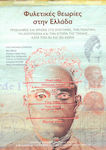





Educational Books
Αναζητώντας "ιερό καταφύγιο", Ο Αλέξανδρος Δελμούζος και η σύγχρονή του ελληνική διανόηση
from 11,25 €Added
History Books
Το Ολοκαύτωμα, The management of traumatic memory: perpetrators and victims
from 19,90 €Added
Educational Books
Εκπαίδευση και εκπαιδευτική μεταρρύθμιση: Ιστορικο-συγκριτικές προσεγγίσεις
from 26,60 €Added

Political Books
Ο Χαρίλαος Τρικούπης και η εποχή του, Πολιτικές επιδιώξεις και κοινωνικές συνθήκες
from 25,59 €Added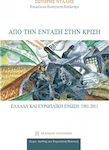

Similar products







Scientific Books
Πολιτικές στέγασης προσφύγων, Towards social inclusion or welfare dependency?
from 10,49 €Added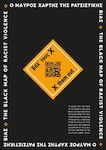
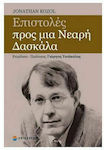

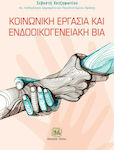

Scientific Books
Πόλεμος και Προσφυγιά, Refugees from Greece: Turkey, Middle East, Africa 1941-1946
Ad from VivliodiktyoAdded
All shops
Prices are calculated for:Germany, Other Payment Options
- 8,48 €
- 10,60 €
Description
This book describes the relevance of the two forms of Eugenics, positive and negative. It also follows, in broad lines, the course of the international scientific (for the data of the end of the 19th and the beginning of the 20th century) community of eugenicists, as well as the general state policies for public health, towards bio-power practices of universal population control and medicalization of behavior. Specifically, during the 20th century, every individual considered deviant or diseased for racial and national purity is targeted by eugenic discourse. The dominance of negative eugenics is naturally interrupted at the end of the Second World War, due to the awareness of the unprecedented humanitarian catastrophe caused by the Holocaust. However, on the contrary, positive eugenics survives, despite the exorcism of its "twin sister". There are hybrid transformations and mutations that - even in a covert form - tend to acquire particular dynamics in contemporary postmodern societies. Sometimes, under the guise of the "good witch", positive eugenics becomes the field of foundation of therapeutic genetics, sometimes it acquires instrumental and dystopian character ("banks of genetic material", cloning, identification through DNA), sometimes it supports inflexible demographic policies that alienate the female body and abolish freedom of will (China), while, finally, in other cases, it is surrounded by the cloak of the health movement, but in essence it serves new forms of manipulation (genetically modified seeds, genetically modified food).
The epilogue of researcher Rania Georgopoulou raises the question of whether in the attempt to accomplish the "impossible of utopia", the techno-scientific advances of modern genomics and genetic engineering shape new forms of "racial" violence and provide biotechnologically upgraded possibilities of eugenic practices, creating a new series of ethical and social dilemmas. Is there an invisible thread that historically connects the eugenic movement in the first half of the 20th century with today's reality? Is the "eugenic dystopia" primarily a bioethical, hence political, rather than scientific issue? Does the belief that everything is only a matter of genes constitute a dangerous alignment with "unified thinking" and a sterile scientific-looking bureaucracy?
Specifications
- Genre
- Sociology
- Language
- Greek
- Format
- Soft Cover
- Number of Pages
- 120
- Publication Date
- 2018
- Dimensions
- 10x17 cm
Important information
Specifications are collected from official manufacturer websites. Please verify the specifications before proceeding with your final purchase. If you notice any problem you can report it here.



























































































































